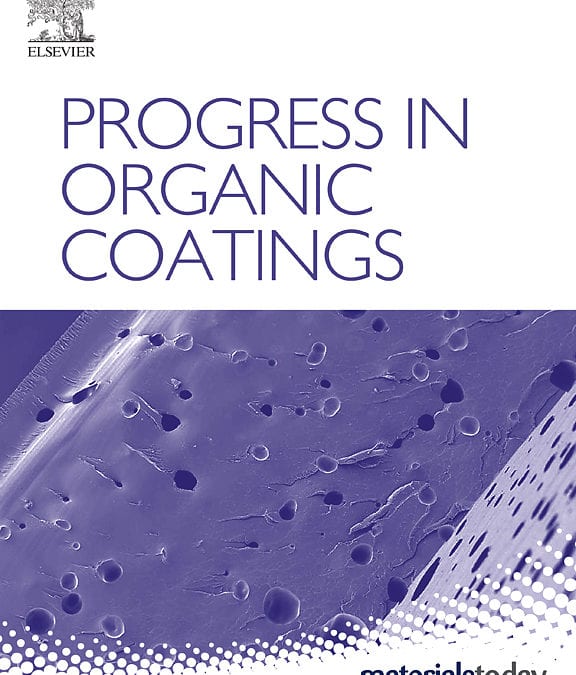Industry News
Cavitation erosion and biofouling are the most severe factors of metal materials fatigue failure and degradation in seawater. In a new study, a series of hydrophobic fluorinated polyurethane coatings (SFPU-x) with various contents of fluorinated isocyanate prepolymer (FIP) were synthesised via a simple addition reaction to produce anti-cavitation erosion properties combined with biofouling resistance.
Laboratory testing, especially with the SFPU-5 coating (with 5% FIP) showed excellent antifouling and cavitation erosion resistance abilities due to surface heterogeneity microstructure. Marine field testing for 30 days has also proven the antifouling properties of the SFPU-5 coating. In addition, there were no obvious holes and cracks on the surface of SFPU-5 after 10 h of cavitation.
The study has been published in Progress in Organic Coatings, Volume 151, February 2021.

Industry News
A recent study focused on molecular design and copolymerisation to enhance the anti-corrosion performance of waterborne acrylic coatings. During the study, acrylic-alkyd copolymers with varied contents of the alkyd copolymer were synthesised by free radical polymerisation in order to create water-borne coatings with distinct molecular structures aimed at enhancing the anti-corrosion performance.
The acrylic-alkyd copolymers were found not only to possess the combined advantages of acrylic and alkyd resins in coating properties such as stability, fast drying and hardness, but also to possess several properties required for enhanced corrosion resistance, especially a higher hydrophobicity of the coating surface, a lower water diffusion coefficient, and a denser network of copolymer films.
These coating properties have led to significant enhancement in the corrosion resistance of these acrylic-alkyd copolymer films, which was confirmed by electrochemical impedance spectra (EIS) and corrosion exposure tests.
The study was published in Progress in Organic Coatings, Volume 154, May 2021.

Industry News
Novosound, a leading ultrasonic company based in Scotland, has announced it has won its first international honour at the 2021 Materials Performance Corrosion Innovation of the
Year awards.
Organised by the Association for Materials Protection and Performance (AMPP), Novosound received the award in the Testing category for its revolutionary Belenus ultrasound sensor, which provides corrosion monitoring across a variety of structures and environments in a range of industries. Manufactured using its patented, thin-film technology, the Belenus is the world’s first corrosion monitoring sensor that can operate completely soaked in high-temperature atmospheres
up to 400°C for extended periods of time.
By providing highly accurate and real-time corrosion data from remote and inaccessible locations, the Belenus enables power plant, refining, processing, and manufacturing facility owners and operators to detect corrosion in metal pipework and structures early and reliably. This facilitates improved maintenance planning and increases operational efficiency, as corrosion issues can be actioned and mitigated before unexpected failures occur.
Dr Claire Thring, Application Specialist for the sensor, said: “The current limitations of ultrasound probes can be traced back to the core rigid, ceramic, sensor materials used in manufacturing, but by using the patented, flexible, core thin-film material, the Belenus can conform to any surface curvature, and coupled with its compact size – roughly the size of a car key fob – allows it to be fitted to a range of structures including pipes, storage tanks and pressure vessels, enabling 24/7 asset monitoring.


